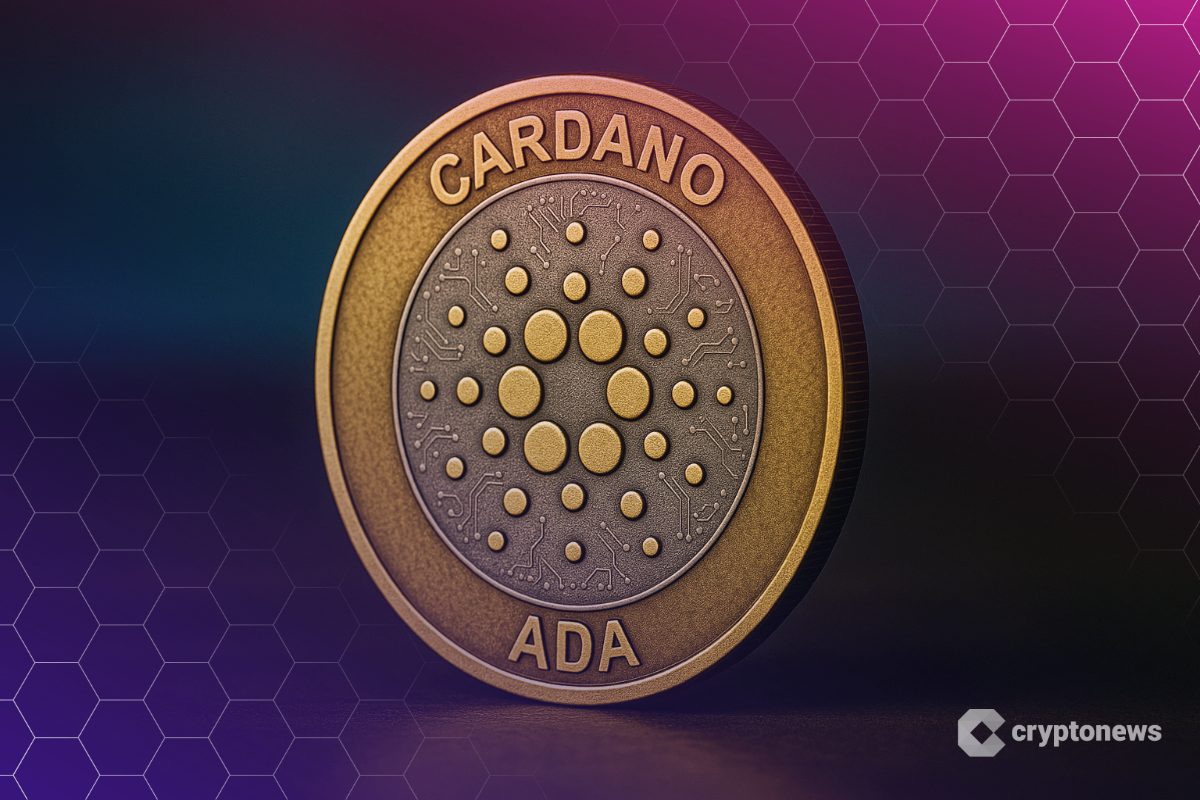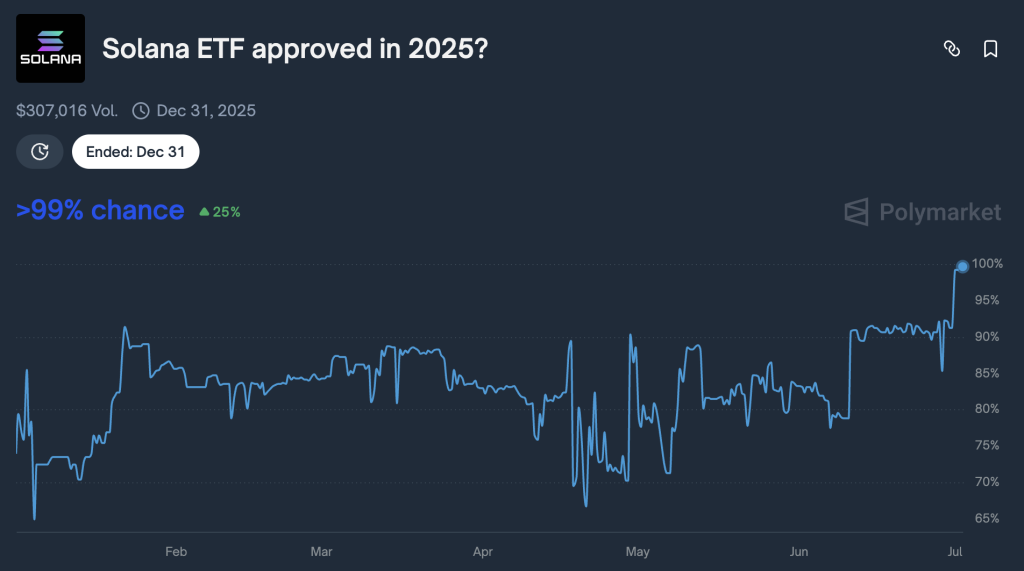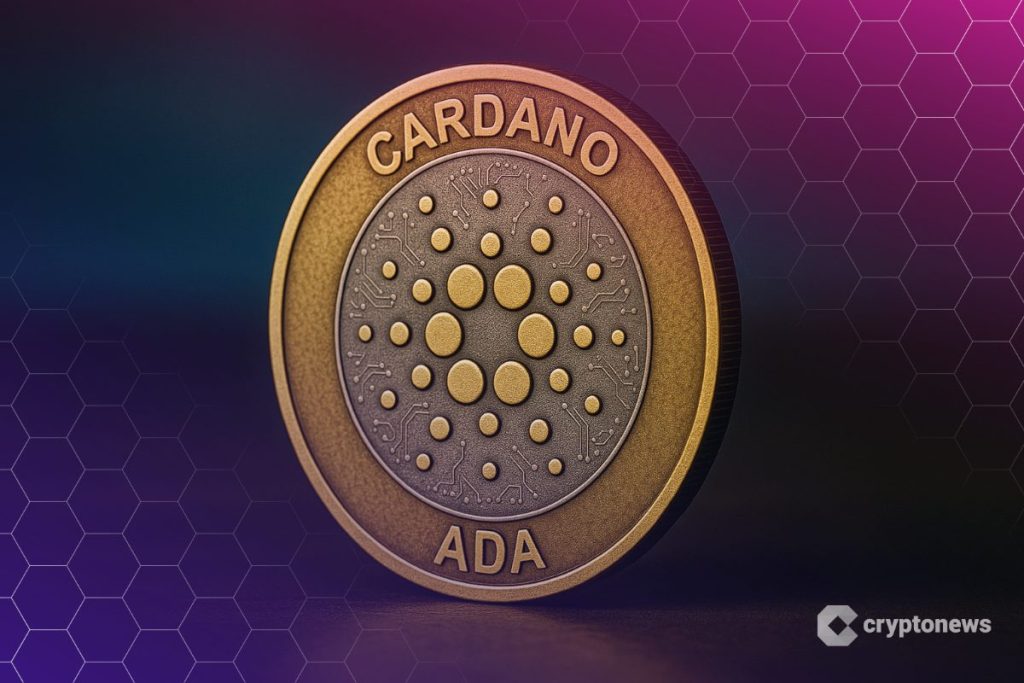
Grayscale Investments filed comprehensive S-1 registration forms with the SEC for spot Polkadot and Cardano exchange-traded funds (ETF).
The Grayscale Cardano Trust ETF (GADA) and Grayscale Polkadot Trust ETF join a crowded field of 92 pending crypto ETF applications currently awaiting regulatory review.
Both trusts were incorporated as Delaware Statutory Trusts on August 12, 2025, following Grayscale’s established pattern of Delaware registrations preceding SEC submissions.
Altcoin ETF Race Heats Up as Approval Odds Surge
The Cardano ETF would trade on NYSE Arca under ticker GADA, while specific exchange details for the Polkadot fund remain pending final approval.
The filings arrive as prediction markets surge with optimism for the approval of altcoin ETFs.
Solana maintains a 99% approval odds on Polymarket for 2025, up from 72% in May, while XRP holds an 87% probability, up from 64% in August.

Even speculative memecoin Dogecoin commands 82% approval odds, nearly doubling from 44% in June.
Grayscale’s aggressive expansion strategy includes converting five existing trusts into ETF structures, covering Litecoin, Solana, Dogecoin, XRP, and Avalanche.
The firm simultaneously filed for Dogecoin ETF approval with ticker GDOG, entering competition with Rex-Osprey and Bitwise for similar products.
Current crypto ETF applications encompass eight Solana proposals and seven XRP submissions, driven by renewed filing activity following the SEC’s feedback.
Grayscale Fund Structured to Anticipate Regulatory Uncertainties
Both Grayscale ETF proposals acknowledge significant regulatory risks, particularly the SEC’s previous determination that ADA constitutes a security.
The Cardano filing warns that a final SEC security classification could trigger material adverse impacts on token value and potentially force the termination of the trust.
The trusts operate through cash-only creation and redemption mechanisms, processing shares in 10,000-unit baskets through authorized participants and liquidity providers.
In-kind transactions involving direct token deposits remain unavailable pending “In-Kind Regulatory Approval” that may never materialize.
Notably, valuation relies on CoinDesk price indices, which are calculated daily at 4:00 PM New York time.
Both funds maintain staking capabilities contingent on undefined “Staking Conditions” that currently remain unmet.
The Polkadot trust anticipates staking up to 85% of holdings through provider-facilitated arrangements, while maintaining 28-day unbonding periods that introduce liquidity constraints.
Additionally, Coinbase Custody Trust Company serves as custodian for both trusts. The Bank of New York Mellon also handles transfer agent and administration duties, while Coinbase Inc. provides prime brokerage services.
Fee structures center on daily accruing sponsor fees paid in underlying tokens rather than cash.
Institutional Demand Drives Altcoin ETF Pipeline Expansion
The 92 pending crypto ETF applications represent a 28% increase from 72 submissions recorded in April.
October deadlines loom for the majority of applications, particularly those for Solana, XRP, and Litecoin proposals, which could trigger significant market activity.
Bloomberg Intelligence analysts project continued growth in filings, with Eric Balchunas suggesting that “pretty soon there will be more crypto ETF filings than stocks.”
Recent regulatory developments have favored broader approvals for crypto ETFs.
The SEC’s approval of in-kind redemption mechanisms for Bitcoin and Ethereum ETFs has widened compliance pathways.
At the same time, the Project Crypto collaboration between the SEC and CFTC aims to clarify digital asset classifications under U.S. law.
Twenty-one Shares and Grayscale lead Ethereum staking ETF applications following regulatory clarity on liquid staking operations.
Notably, VanEck’s JitoSOL proposal also represents the first entirely liquid staking token-backed fund, tracking tokens representing staked SOL on the Solana network.
A wave of XRP ETF amendments filed last week likely responded to SEC feedback, adjusting fund structures to accommodate both token and cash creations, as well as cash and in-kind redemptions.
Nate Geraci of The ETF Store called the synchronized filings “highly notable” and “a very good sign” for approval prospects.
BlackRock, despite launching pioneering Bitcoin and Ethereum ETFs, confirmed no current plans for XRP products.
Looking forward, as Alts continue their bullish trajectory, NoOne’s CEO, Ray Youssef, predicts that major cryptocurrencies, including SOL, XRP, and BNB, will attract huge capital investments.
For SOL specifically, Youssef, speaking with Cryptonews, noted that Solana treasury companies are lining up funds running into tens of billions to accumulate SOL.





